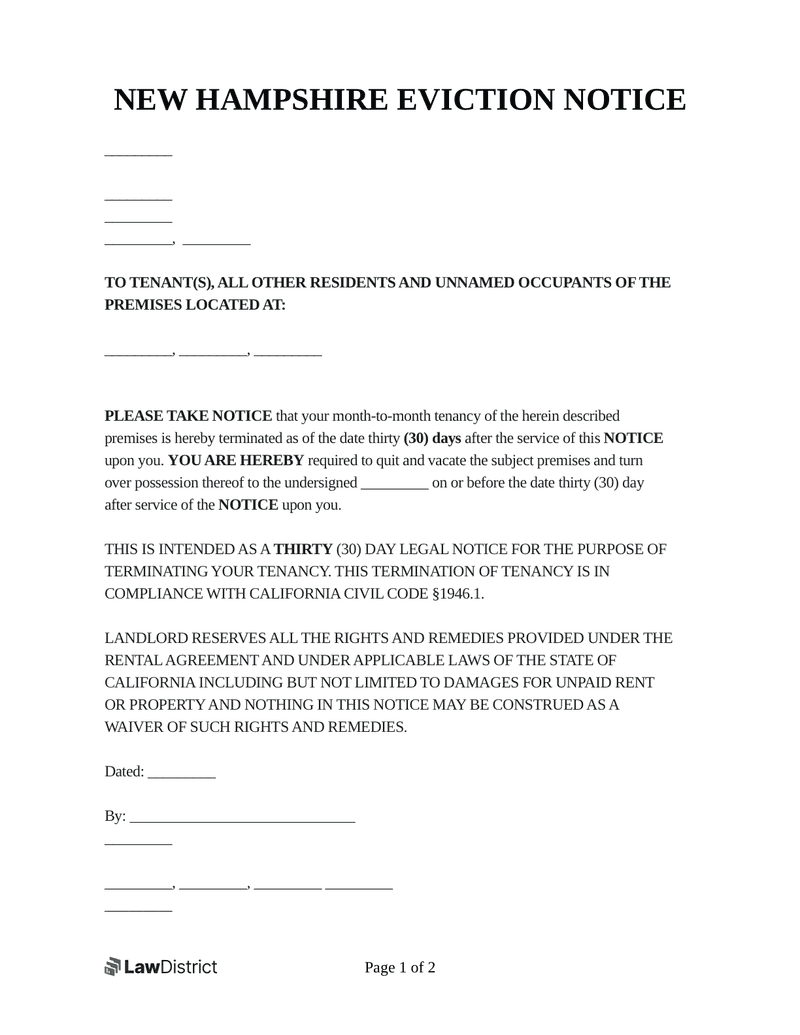It’s necessary to provide the correct type of New Hampshire eviction notice to the tenant you’re removing from your property. If you don’t, the eviction could be overturned or take significantly longer to complete.
You must give your tenant the precise legal document for the situation, detailing a valid legal reason for the eviction under NH statutes. This will also affect how long you must give the resident as notice before they have to leave the property.
As seen below, there are a few different options in New Hampshire when completing an eviction.
7-Day Notice to Quit (Non-Payment)
If the tenant fails to pay rent, you can serve them with a 7-Day eviction notice. This requires the tenant to either pay the rent owed or to quit the property within 168 hours.
Assuming the tenant pays the rent within this time given, the notice will be null and void. However, if payment isn’t made, and they still refuse to leave, the landlord can sue the tenant in court.
30-Day Notice to Quit (Non-Compliance)
In situations where the tenant violates the terms of the lease, landlords can issue them with an NH 30-Day Notice to Quit for Non-Compliance. This gives the resident a chance to correct the violation within 1 month, or to leave the premises.
This can also be issued as an unconditional notice, such as when the tenant causes significant damage to the property, giving no option to correct the break in the terms. However, this is usually only done when serious breaches of the contract occur.
30-Day Notice to Quit (Month-to-Month)
30 Day-Notice to Quit documents are used to evict month-to-month tenants or those who don’t have a fixed lease without providing any given cause. This allows the landlord to inform the tenant that they must vacate the property within 30 days or face a legal challenge.
